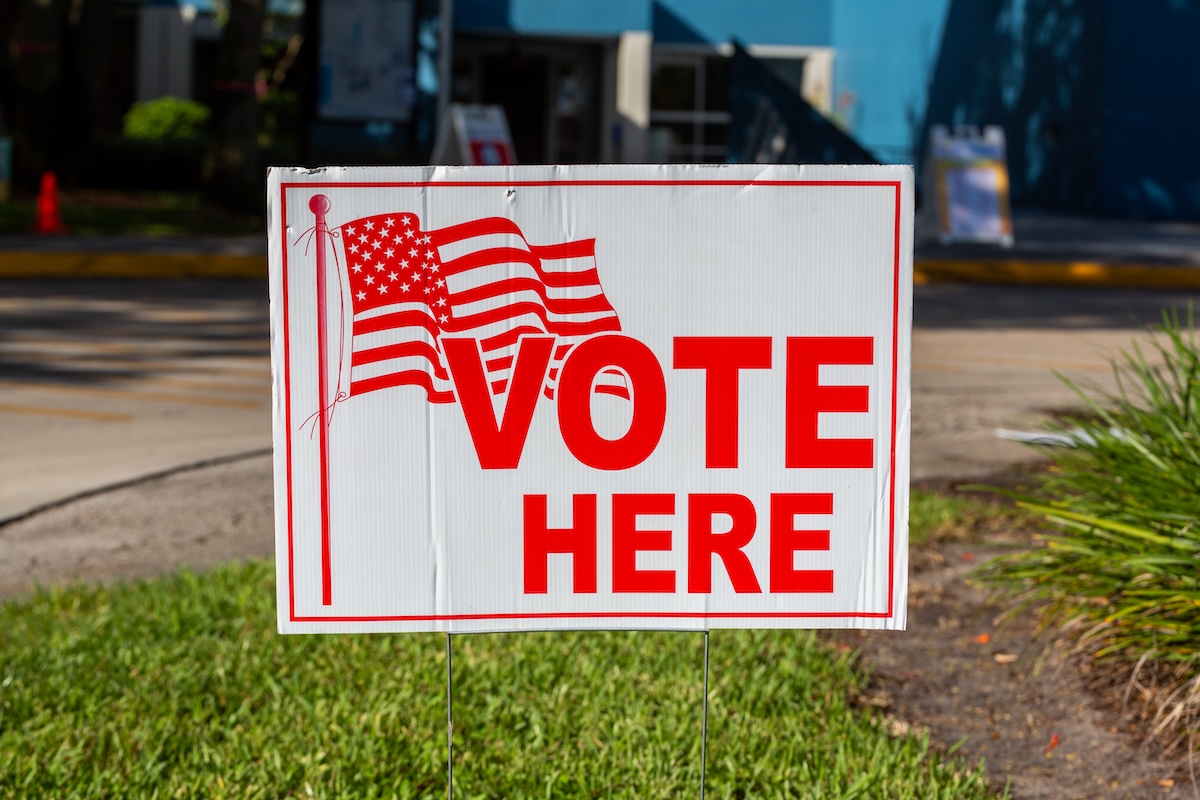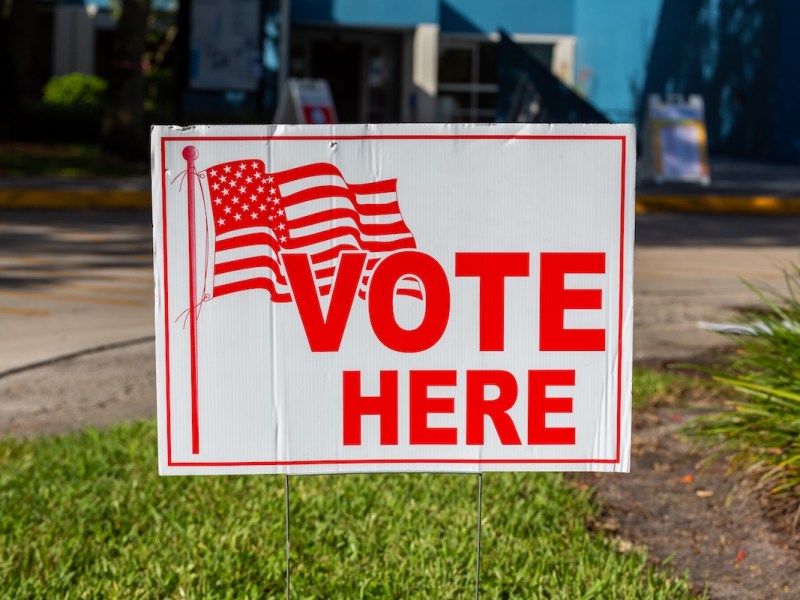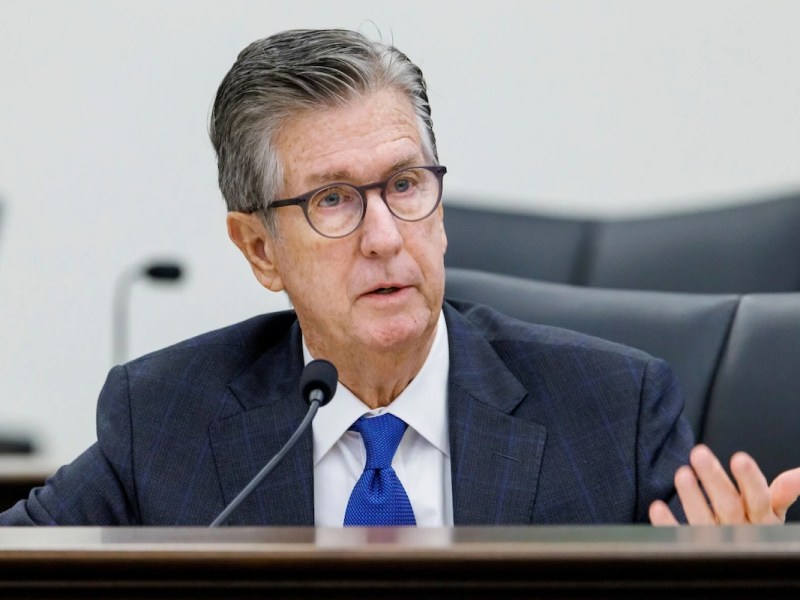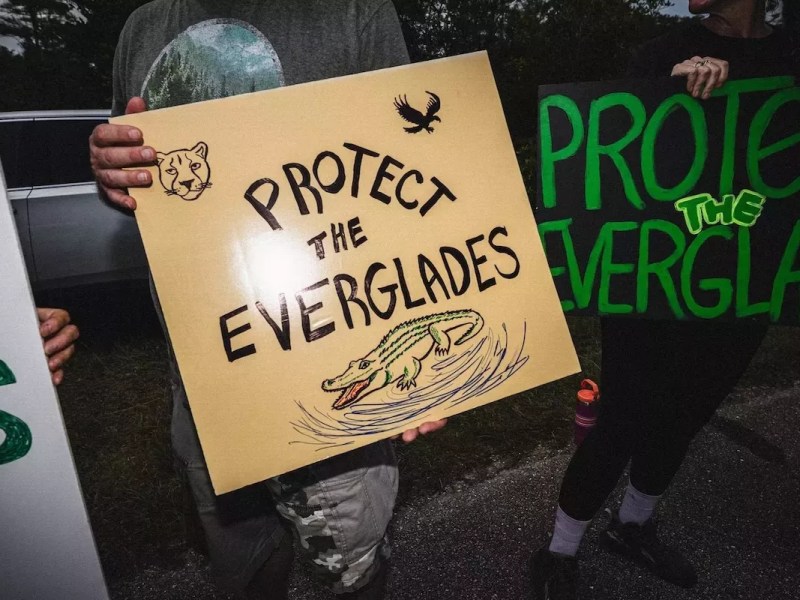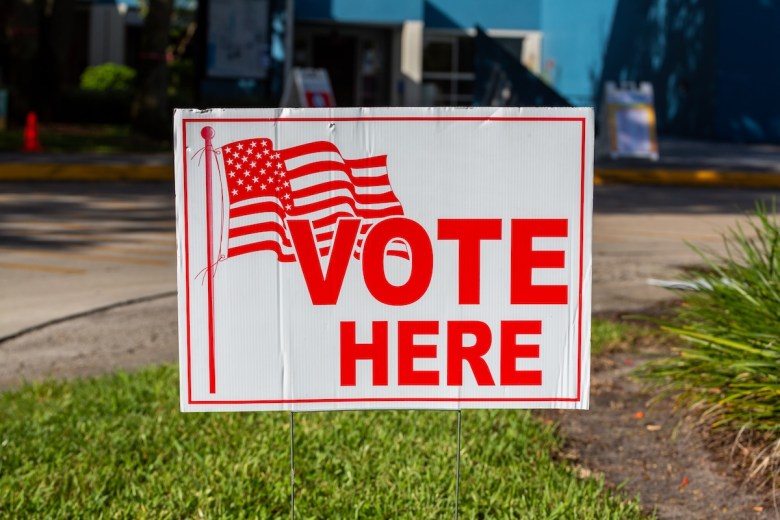 Credit: via Shutterstock
Credit: via Shutterstock
For the first time since Floridians voted to restore voting rights to most people with felony convictions, the state has agreed to provide timely information about which of them have paid the financial obligations that would entitle them to cast ballots.
That change is the result of negotiations last year after the Florida Rights Restoration Coalition dropped its 2023 lawsuit against Gov. Ron DeSantis, Secretary of State Cord Byrd, and other Florida election officials. The coalition had alleged the state had created “such a bureaucratic system around the implementation of Amendment 4” that it prevented Florida citizens from voting.
More than 65% of Floridians approved Amendment 4 in 2018, ostensibly restoring voting rights to all individuals who had completed their sentences (except for those who committed murders and sexual offenses). In 2019, the Legislature passed implementing language requiring felons (or “returning citizens”) to have paid any legal financial obligations, including fines, fees, or restitution imposed on them by a judge, before they could see their voting rights restored.
In a highly publicized incident just days before the August 2022 primary election, the then-newly formed Florida Office of Election Crimes and Security arrested 20 individuals for alleged voter fraud, mostly those with past felony convictions. Several of those arrested had received voter registration cards from the state, leading them to believe that their rights had been restored.
Now individuals with felony convictions who have completed their sentences but remain uncertain whether they still have legal financial obligations to fill out a request form to the Department of State to inquire about voting eligibility.
 Credit: Screenshot of top of form that individuals with felony convictions in Florida can now complete and send to the state’s Division of Elections to verify voting eligibility.
Credit: Screenshot of top of form that individuals with felony convictions in Florida can now complete and send to the state’s Division of Elections to verify voting eligibility.
New form
“We have a standardized form that will cost the individual nothing if they want to submit information to us as to whether or not that they are eligible,” Florida Secretary of State Cord Byrd said last week before the Florida House Government Operations Subcommittee. “We’re happy to do that. We do that on a regular basis.”
As part of the final rule, the state now has a 14-day deadline to respond to an initial request to determine whether a submitted form is complete and 90 days to issue an advisory opinion after receiving that completed request.
The advisory opinion would be one of three responses:
The individual is eligible to register to vote.
The individual is ineligible to register and vote.
The Division of Elections lacks credible and reliable information — therefore, “nothing precludes you from registering and voting.”
The program is similar to legislation filed by Rep. Dotie Joseph, D-North Miami, (HB 1525) and Sen. Tina Polsky, D-Boca Raton, (SB 904) during the 2024 legislative session.
Desmond Meade, president and executive director of the Florida Rights Restoration Coalition, says the original lawsuit was ultimately about whose responsibility is it to determine voter eligibility.
“The primary purpose of this piece is to take away the mens rea part of it,” Meade said last week, referring to the concept in criminal law that separates accidental acts from intentional crimes.
“If the state wants to charge somebody with committing a certain crime, part of the element that they must show beyond a reasonable doubt is that they were doing something wrong,” he said. “That is a key element in any voting case that you’re going to come across.”
For the past several years, Florida Democrats have filed legislation to establish a centralized database to track the voting-rights status of individuals with felony convictions. A 2026 version (HB 73) has been filed in the House by Rep. Felicia Robinson, D-Miami Gardens, and in the Senate (SB 132) by Polsky to require the Florida Commission on Offender Review to maintain a financial obligations database.
Secretary Byrd was responding last week to an inquiry from newly elected Rep. RaShon Young, D-Orlando, who said returning citizens in his community were “still expressing confusion” about the verification process. Young asked what steps the Department of State was taking to “reduce that confusion” and make the process clearer.
Byrd mentioned the new form and told Young that it was important the information “is getting out to the people in your community and we will conduct that information, because we’re doing it, so that people know that we don’t want to trap anybody into a felony.”
Meade said he thinks the new process is “great first step” for the state. He adds that he’d like the Department of State to make the form more accessible online if possible, and also hopes the agency could partner with voting rights groups like his own to get the word out to affected individuals.
“Now people who want to be part of democracy can get an answer in a timely manner that would direct them one way or another, and it takes away the necessity for the state to even go after these folks and spend millions of dollars trying to prosecute people who should not be prosecuted in the first place,” he said.
The Florida Department of State weighed in after this story was published.
“We believe the revised rule and form is providing a fair and efficient process for persons who have been convicted of a felony to determine their eligibility so that those who have satisfied the requirements to have their voting rights restored can register and vote,” said Ryan Ash, deputy director in the office of communications. “Information about the advisory opinion process and felon voting rights may be found online.”
Subscribe to Orlando Weekly newsletters.
Follow us: Apple News | Google News | NewsBreak | Reddit | Instagram | Facebook | Bluesky | Or sign up for our RSS Feed
Related Stories
The change is a result of negotiations after the Florida Rights Restoration Coalition dropped its lawsuit against state election officials
Boyd did not detail priorities but spoke of a need to ‘defend the taxpayer’ and to ‘protect the rights of parents and strengthen our schools’
An environmental group filed a lawsuit alleging that state officials have improperly withheld public records
Related

